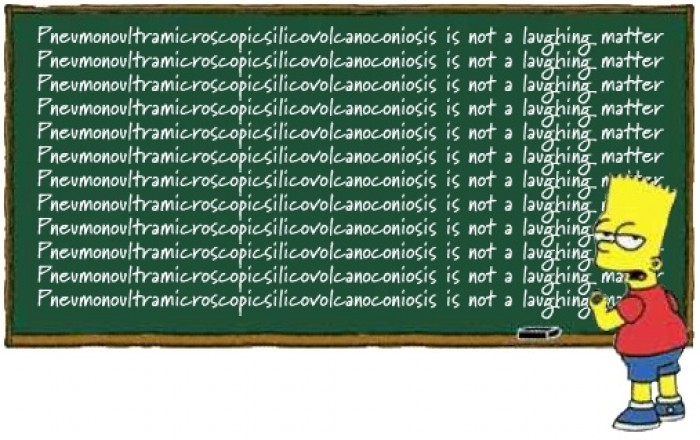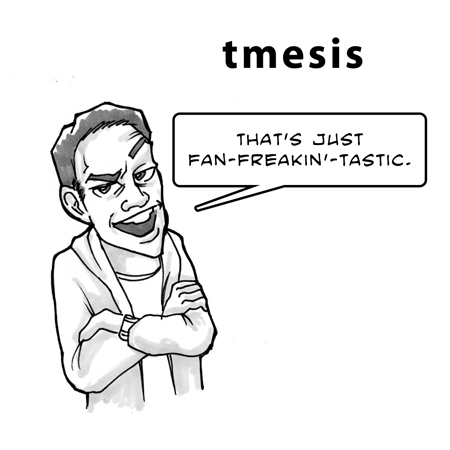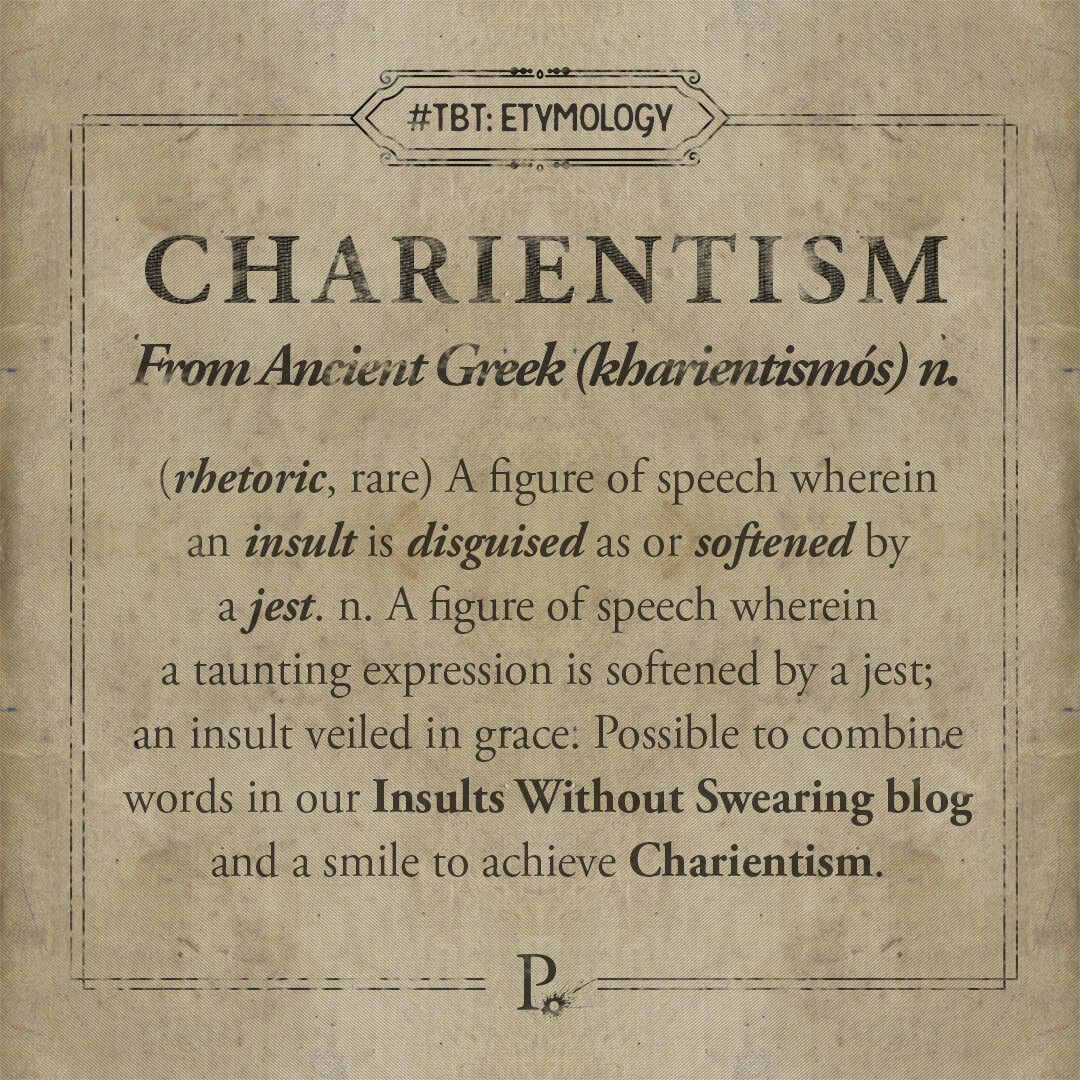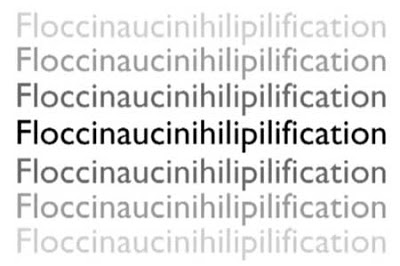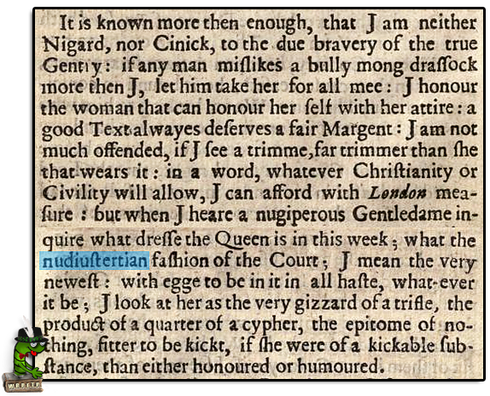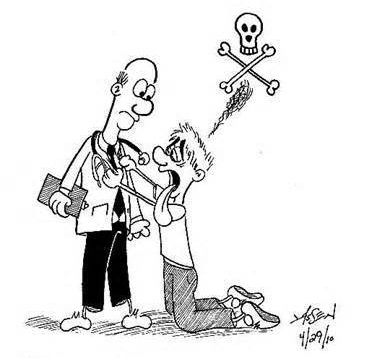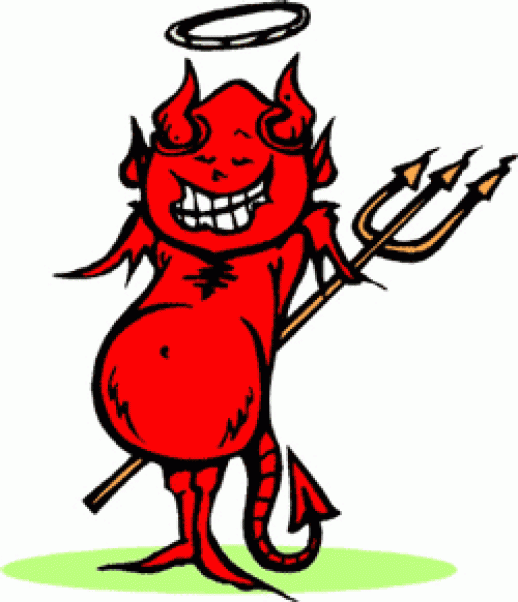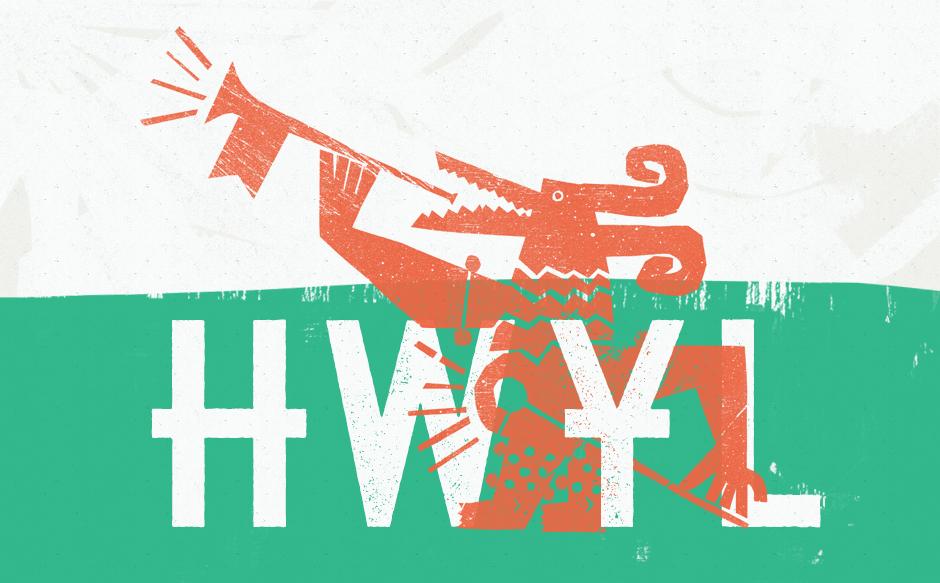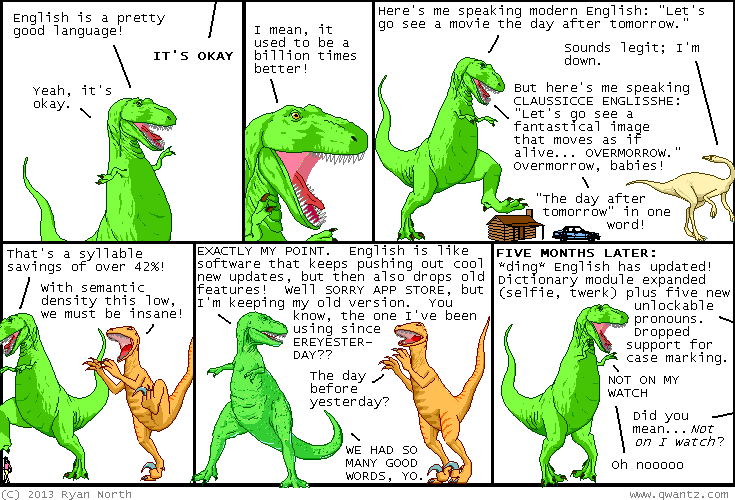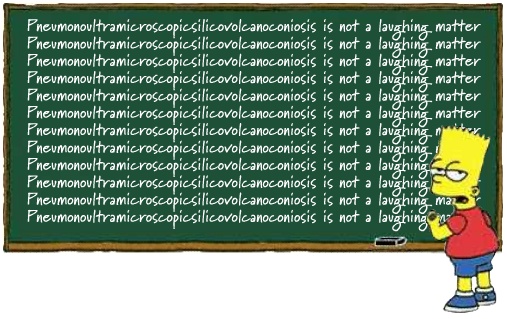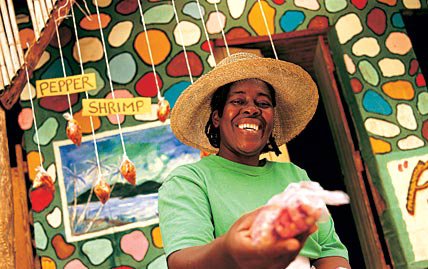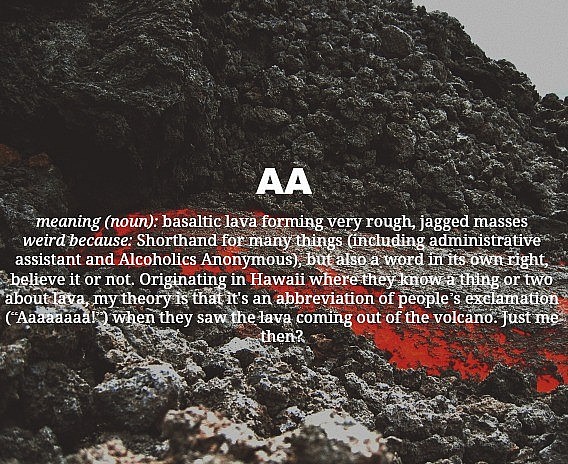Language isn’t just a medium of communicating your thoughts, feelings, and ideas. It’s a whole different world in itself. Language shapes our perception, personality, and passion.
There’s a word for almost every feeling that you feel. There’s a word for almost everything that you see. There’s a word for almost everything you can think of. Every word for sure carries a certain beauty and uniqueness describing really incredible things.
More than a million words are there in the English language. Many of them have faded, many of them aren’t much used. And nearly 171,476 words are commonly used in the current scenario. The infrequently used words belong to psychology, biology, medicine, astronomy, and other fields. They remain in a state of vernacular obscurity because of their extraordinary specificity.
Neither heard nor spoken on a regular basis, these are 25 fascinating rare words that are a delightful addition to your vocabulary and also appealing to the senses and the English language.
1. Tmesis (tuh-mee-sis)
Source = Amazonaws
An unusual word with an unusual meaning, ‘tmesis’ is the only word in English that begins with ‘tm-’.
What it means: Insertion of one or more words to make a compound word
Etymology: The word ‘tmesis’ originates from the Greek tmesis «a cutting», related to temnein which means «to cut».
Example sentences:
- ‘to’ inserted in ‘update’ makes for ‘up-to-date’
- ‘so’ inserted in the middle of ‘whatever’ makes for ‘whatsoever’
- ‘Whole’ inserted in the ‘another’ makes for ‘a whole nother’
2. Syzygy (siz-i-jee)
Source = Giphy
The word ‘syzygy’ is as rare, beautiful and unique as is its astronomical occurrence. This is the only word in all of English to have three Y’s.
Moreover, other than astronomy, it has different meanings in poetry, genetics, psychology, medicine, mathematics, zoology and astronomy. Bonus fact is that it’s also one of the high-scoring Scrabble words.
Different meanings in different fields:
- Astronomy: An alignment of three celestial bodies more commonly the Sun, Earth, and Moon akin to an eclipse.
- Genetics: The pairing of chromosomes in meiosis.
- Mathematics: A relation between generators of a module.
- Medicine: The fusion of some or all organs.
- Poetry (in classical prosody): The combination of two metrical feet into a single unit.
- Psychology: A quintessential pairing of contrasexual opposites which symbolizes the communication of the conscious and unconscious minds.
- Zoology: The association of two protozoans for the purpose of asexual exchange of genetic material.
Etymology: The word derives via late Latin from Greek suzugia «yoke of animals, pair, union of two, conjunction» from suzugos «to yoke together». It is the compound form of syn «together» + zygon «yoke».
Example sentences:
- The moon is at syzygy when full.
- The planets were aligned in syzygy. (3.1)
3. Hydroxyzine (hahy-drok-suh-zeen)
Source = Nih
Hydroxyzine is the only word to have X, Y, Z back-to-back and in-order. The first known use of this medicine was back in 1956. It can help you relieve tension, irritability and anxiety.
Meaning: A tranquilizing drug used to cure anxiety and motion sickness.
Etymology: hydroxy- + (pipera)zine
Example sentence: Do not use Hydroxyzine for alcohol withdrawal!
4. Philodox (FIL-uh-doks)
Source = Pinimg
‘Phil-’ is the root word used to define love for something and ‘dox’ means beliefs and praise. So someone who loves his own opinions is a philodox.
What it means: A dogmatic person who loves his or her own opinions.
Etymology: From Middle French philodoxe, from Ancient Greek (philódoxos, “opinion-loving”). It is a compound of (phílo-, “philo”) + (dóxa, “glory; opinion”).
Example sentence: Once again, it was a joy to see and meet those that really make a difference in the security market, believe me, life isn’t short of philodox characters… (Security News Desk)
5. Dextrosinistral (deks-tro-sin-is-tral)
Source = Whstatic
Lefties or left-handed people are often asked (and sometimes forced) to switch their handedness and become a right hander. Those who’re trained to become one are called ‘dextrosinistral’.
Meanings:
1. Moving or extending from right to left
2. A natural left-handed person trained to use the right hand (3.2)
Etymology: (dextro- + sinistral) From the Latin ‘dexter’ meaning right and ‘sinister’ meaning left.
Example Sentence: The maximum deformation was mostly in the dextrosinistral direction.
6. Lalochezia (lah-loh-KEY-zee-uh)
Source = Oxfamblogs
When you’re in a state of extreme anger and spew filthy or indecent words from your mouth, the emotional relief you gain by doing that is called lalochezia.
Meaning: Emotional relief gained using expletives or abusive language (3.3)
Etymology: From the Greek ‘lalia’ meaning speech and ‘chezo’ meaning to relieve oneself.
Example Sentence: But you can build up a tolerance to lalochezia—the more you swear, the less it helps. (Greatist)
7. Gargalesthesia (gar-guhl-es-thee-zee-yah)
Source = Giphy
It’s the sensation you feel when your sensitive areas are ticked really hard and repeatedly.
Meaning: The sensation caused by being tickled.
Etymology: A compound of the Greek ‘gargalos’ meaning itching and ‘aesthesia’ or ‘esthesia’ meaning ability to perceive sensations.
Example sentence: Gargalesthesia has been known to cause death when prolonged.
8. Factotum (fak-toh-tuh m)
Source = Modworkshop
A factotum is someone who possesses diverse traits and serves different responsibilities. And that makes him/her jack of all trades.
Meanings:
- A person having many diverse activities or responsibilities.
- A general servant.
- A jack of all trades.
- An individual employed to do all kinds of duties.
Etymology: From the Latin ‘facere’ meaning to do and ‘totum’ meaning everything. (3.4)
Example sentence: By day three, it was the department’s triumph and I was a factotum. (Jack Kerley, THE HUNDREDTH MAN)
9. Charientism (ka-ri-yent-izm)
Source = Theprose
When you’re having a group chat and don’t understand whether something was a quip or a disdain, it’s charientism. It is an artfully concealed insult.
Meaning: A figure of speech wherein an insult is disguised as or softened by a jest.
Etymology: From Ancient Greek (kharientismós)
Example sentence: I’d offer up a charientism but I’m not polite enough to bother masking my dislike for people.
10. Manque (man-que, ma-nq-ue)
Source = Blogspot
When you feel unfulfilled or frustrated for not living up to a certain expectation or ambition, it’s called manque.
Meaning: would-be; unfulfilled realizing an ambition or capability due to the vagary of circumstance, some inherent flaw, or an often uncertain constitutional lacking of some kind.
Etymology: From French manqué (to lack)
Example sentence: The manager is an actor manqué.
11. Floccinaucinihilipilification (FLOK-si-now-sin-ih-HILL-ip-il-IF-i-CAY-shun)
Source = Englishbookgeorgia
Damn hard to pronounce, this 29-letter-long word happens to be one of the longest words in the English language. With the meaning ‘categorizing something as valueless, the humorously paradoxical fact about the word is that it is quite a useless word in itself; which is hardly used anywhere except as an example of a long word.
Meaning: the action or habit of estimating something as worthless (3.5)
Etymology: From a combination of four Latin words: flocci, nauci, nihili, pili (meaning ‘hold at little value’)
Example sentence: Floccinaucinihilipilification is one of a number of very long words that occur very rarely in genuine use.
12. Nudiustertian (noo-dee-uhs-TUR-shuhn)
Source = Wordsandphrasesfromthepast
According to the Oxford English Dictionary, the word ‘nudiustertian’ has been mentioned only in the very popular work ‘The Simple Cobbler of Aggawam in America’ written by Nathaniel Ward.
Meaning: very recent, the day before yesterday
Etymology: From Latin ‘nudius tertius’, from phrase nunc dies tertius est meaning ‘today is the third day’. (3.6)
Example sentence: When I hear a‥Gentledame inquire‥what [is] the nudiustertian fashion of the Court; I mean the very newest. (The Simple Cobbler of Aggawam in America)
13. Pandiculation (pan-dik-oo-lay-shun)
Source = Somaticmovementcenter
Whenever you feel drowsy or weary, just stretch your limbs and neck and accompany it with yawning. This simple and effective movement is called pandiculation. It helps to reboot your brain’s sensation and also restores complete muscle function.
Meaning: yawning and stretching (as when first waking up)
Etymology: From Latin pandiculari, from pendere to stretch
Example sentence: Instances of pandiculation in the audience suggests the show isn’t going well.
14. Valetudinarian (val-i-too-duh-NAYR-ee-uhn)
Source = Digopaul
Someone who is constantly obsessed about his or her health is called a valetudinarian. It is used as both a noun and an adjective.
Meaning: a sickly or weak person, especially one who is constantly and morbidly concerned with his or her health
Etymology: The word comes from Latin valētūdinārius, from valetudo (“state of health, health, ill health”), from valere (“to be strong or well”)
Example sentences:
1. A «valetudinarian» is a 10-dollar word for someone who is sickly.
2. The valetudinarian habit of discussing his health had grown on Rose…
15. Schadenfreude (shah-den-froydah)
Source = Dailydubie
When someone feels malicious enjoyment from observing someone else’s misfortune, that feeling is schadenfreude.
It is the synonym of another rare word ‘epicaricacy’. This word became popular in English in the late 20th century. Its usage was seen in an episode of ‘The Simpsons’.
Meaning: satisfaction or pleasure felt at someone else’s misfortune malicious enjoyment derived from observing someone else’s misfortune
Etymology: The word was borrowed from German Schadenfreude (“joy in the misfortune of others”), from Schaden (“damage, harm, mishap”), and Freude (“joy”).
Example sentence: And Mr. Henry’s arrival suggests the schadenfreude is over.
16. Chthonic (thon-ik)
Source = Publicationcoach
What dwells beneath the earth’s surface is chthonic.
Meaning: of or characteristic of the mythological underworld, subterranean (3.7)
Etymology: From Ancient Greek khthonios (of the earth), from khthōn, earth
Example sentence: The young pantheon had remanded their elders to the role of smoldering, chthonic gods……
17. Hwyl (HU il)
Source = WordPress
That’s a stirring and motivational energy that one experiences when he/she is all pumped up and determined to achieve a particular goal or ambition.
Meaning: emotional fervor (as in the recitation of poetry), a melodic chanting style of Welsh preaching.
Etymology: Welsh
Example sentence: We will never lack hwyl on the second Gwlad of an international day anthem…..
18. Lethologica (Leth-Oh-LOGE-ikuh)
Source = WordPress
If you are unable to recall the exact word for something, you have a lethologica.
Meaning: the inability to remember the accurate word for something
Etymology: Carl Jung coined this word from the Ancient Greek lḗthē meaning forgetfulness and lógos meaning word.
Example sentence: You might have trouble recalling that lethologica is the inability to remember a word.
19. Overmorrow (oh-vuhr-MOR-oh)
Source = Qwantz
The day that is two days ahead of today is ‘overmorrow’.
Meaning: the day after tomorrow.
Etymology: The word comes from Middle English overmorwe. It is a compound of over + morwe (“morrow”).
Example sentence: ‘Does overmorrow work for you?’
20. Velleity (vuh-LEE-i-tee)
Source = Netdna-cdn
A mere wish with no strong desire to act is called ‘velleity’.
Meanings:
1. The weakest degree of desire or volition.
2. A slight wish with no effort to act.
Etymology: From Medieval Latin velleitās, from Latin velle (“to wish or will”). (3.8)
Example sentence: He felt cast out … divorced from the caprices and the velleities of childhood.
21. Sesquipedalian (ses-kwi-pi-DAYL-yuhn)
Source = Blogspot
A word that is one and a half feet long is called ‘sesquipedalian’.
Meanings:
1. Given to or characterized by the use of long words, long-winded.
2. Having many syllables; polysyllabic. (3.9)
Etymology: The word came into existence in the mid 17th century, 1656 to be precise. It originated from Latin sesquipedalis ‘a foot and a half long,’ from sesqui- (see sesqui-) + pes, ped- ‘foot’.
Example sentence: Anne, that ridiculously sesquipedalian word you just gutturally uttered is a perfect example of why Germans don’t play Scrabble.
22. Borborygmus (bor-buh-RIG-muhs)
Source = Stomachnoises
Being an onomatopoeic word, the word ‘borborygmus’ imitates the annoying, loud gurglings made by the stomach. Chances are you’ve never heard of this word unless you’re a gastroenterologist.
Meaning: rumbling or gurgling sound caused in intestines and stomach by moving fluid or gas (3.10)
Etymology: Originated in the early 18th century, the word was originated from modern Latin, from Greek borborygmos, from borboryzein (to rumble)
Example sentence: Unfortunately sir the other guests are trying to listen to the singer but your borborygmi (plural) are so loud they are interrupting the performance.
23. Doohickey (duːhɪki)
Source = Gstatic
Open your childhood treasure of toys, and you’ll discover so many objects & gadgets whose name you wouldn’t know or recall. Those gadgets are doohickeys.
Meaning: a small object or gadget, especially one whose name the speaker doesn’t know or can’t recall.
Etymology: The word’s origin lies in the 20th century. It is a blend of doodad and hickey.
Example sentence: This garage is filled with electronic parts and other valuable doohickeys.
24. Higgler (higgl-ůr)
Source = WordPress
Someone who goes around selling small items is known as a higgler.
Meanings:
- a person who travels around selling small items; a pedlar.
- a person who haggles or negotiates for lower prices.
Etymology: probably an alteration of haggle
Example sentence: But while she still lived and prospered as a higgler we had to find another helper to fill.
25. Contronym (KAHN-troh-NIM)
Source = WordPress
Also known as contranym or autoantonym, a contronym is a word with two meanings having opposite meanings. For e.g. sanction (meaning both ‘a penalty for disobeying a law’ and ‘official permission or approval for an action’).
Meaning: a word with two opposite meanings
Etymology: a combination of contra- and -onym, on the pattern of synonym and antonym
Example sentence: The word contronym is a recently coined neologism.
Do you also know a rare word in English or any other language? If you do, then do tell us the word with its meaning in the comments section below!
Every language has a list of rarely used words that very few people know. They are not commonly known because they are rarely needed. Why bother learning something that you will not use..right? But for us, language nerds, that’s what gives meaning to our lives. Tracking down words and what they mean satisfies a curiosity that sits deep within us, whatever they mean. I wrote this article to satisfy that curiosity. So I brought to you 30 words that exist in English that you and other people probably don’t know. Don’t forget to share your favorites.
Nillionaire
Someone having little to no money.
Minimus
Your tiny toe or finger.
Serendipity
Finding something good without looking for it.
Quixotic
Unrealistically optimistic.
Caruncle
The triangular pink areas at the corner of your eyes.
Agelast
A person who never laughs.
Osculator
One who loves or one who is loved.
Callipygian
Having large, round, succulent buttocks.
Limerance
The state of being infatuated with someone.
Oxter
Armpit.
Atrate
Dressed in black.
Applepick
steal someone’s iPhone.
Axicolous
Something that lives on rocks.
Metanoia
Spiritual transformation.
Pauciloquent
Concise.
Jamais-vu
The feeling familiar is being encountered for the first time.
Laodicean
Indifferent.
Cacoethes
Bad idea.
Vaticinate
Predict.
Zoilism
Criticism.
Mephitic
Smelly.
Dysania
The state of finding it extremely difficult to get out of bed in the morning.
Febrile
Feverish.
Tittle
The dot over an “i” or a “j”.
Idoneous
Appropriate.
Kenspeckle
Recognizable.
Tergiversate
Equivocate.
Gigil
The irresistible urge to pinch or squeeze something cute.
Malarkey
Nonsense or balderdash.
Bravado
Someone who is full of false kind of courage that masks a hidden fear.
Do you know other words that people don’t know? Don’t hesitate to add them in the comment section. Have a bright day 🙂
Do you ever feel like there’s no way to fully express what you want to say? This happens to a lot of us, but it’s not because those words don’t exist. There’s a whole world of rare words with beautiful meanings out there.
If you’re feeling speechless, take a look at this list of unique words you can add to your daily vocabulary.
1. Zephyr
Noun: a calm, gentle breeze.
This word stems from the name Zephyrus, the Greek god of the west wind.
RELATED: 23 Words For Emotions You Feel But Can’t Explain
2. Eunoia
Noun: beautiful thinking; healthy mind.
Eunoia is the shortest word in the English language that has each vowel in it.
3. Fika
Noun: a moment to slow down and appreciate the little things in life.
Fika is a Swedish concept that makes it essential to take time to stop and socialize.
4. Philocalist
Noun: lover of beauty; someone who finds beauty in all things.
A philocalist is someone who is able to cherish the little things.
5. Redamancy
Noun: the act of loving someone who loves you back; a love returned in full.
Redamancy is what happens when the feeling is mutual. It’s sort of the opposite of unrequited love.
6. Aliferous
adjective: having wings.
If you drink a Red Bull, you will likely become aliferous.
7. Munificence
Noun: the quality of being very generous.
A rich friend who is generous with there money has munificence.
8. Peiskos
Noun: the feeling of enjoying the warmth from a fireplace.
Peiskos is a Norweigian word that describes the pleasures of sitting in front of a glowing fire.
9. Querencia
Noun: a sanctuary where you feel safe.
A querencia is an area in a bullfight arena taken by the bull for a defensive stand.
10. Reverie
Noun: the state of being lost in your own thoughts; a daydream.
A reverie can be broken by a loud obnoxious sound.
11. Beamish
Adjective: bright, cheerful, and optimistic.
Most optimists have a beamish quality about them.
12. Metanoia
Noun: the journey of changing your mind, heart, self, and way of life.
A spiritual awakening is an example of metanoia.
13. Paladin
Noun: a determined advocate or defender of a noble cause.
A paladin is a military leader or medieval prince.
14. Ataraxia
Noun: a state of freedom from emotional disturbance and anxiety; tranquility.
Ataraxia means living without anxiety. Imagine!
15. Snuggery
Noun: a cozy room.
A snuggery is a place full of fluffy pillows, if that’s something you like!
16. Lagom
Adjective: not too much and not too little; just the right amount.
Lagom is a Swedish and Norwegian word that means «just the right amount.»
17. Selcouth
Adjective: unfamiliar, rare and strange, but marvelous.
Of all the unusual words with beautiful meanings, selcouth might be the rarest. It is used to describe something rare, but beautiful.
So all of the words on this list have a selcouth quality to them.
18. Thalassophile
Noun: lover of the sea.
A Thalassophile is someone who loves to spends their summers at the beach.
19. Raconteur
Noun: a talented storyteller.
If you’re hosting a dinner party with a lot of introverts, you should definitely add a raconteur to the guest list.
20. Orphic
Adjective: mysterious and enchanting; beyond ordinary understanding.
An Orphic idea is the Nietzchean idea of eternal recurrence.
21. Appetence
Noun: an eager desire or instinctive inclination; an attraction or natural bond.
Just looking at the big golden McDonald’s arch can give you an appetence for a juicy big mac.
22. Nyctophilia
Noun: the love of darkness or the night.
Nyctophilia is a strong preference of night time over the daytime.
23. Quintessential
Adjective: the perfect example or representation of a certain kind of person or thing.
Britney Spears is the quintessential example of a pop star who is under the thumb of someone else’s emotional control.
24. Apricity
Noun: the warmth of the sun in winter.
Iowans jump for joy at apricity. The winters in Iowa get so tedious and dreadful, that a little sunlight every now and then makes a huge difference on their mood.
25. Elysian
Adjective: sharing characteristics of heaven/paradise.
A tropical vacation is elysian.
26. Psithurism
Noun: the sound of the wind in the trees.
Psithurism, the sound of the wind in the trees, is quite possibly the most beautiful sound in nature.
27. Mudita
Noun: delight in the happiness of others.
Mudita is the feeling of happiness that comes when other people are happy.
28. Bimble
Verb: to walk at a leisurely pace.
Nobody in New York City has time to bimble to the subway. Everyone must walk with intention and urgency.
29. Librocubicularist
Noun: a person who reads in bed.
A librocubicularist is someone who reads in bed before falling asleep.
30. Incandescent
Adjective: emitting light; full of emotion, passionate.
The sun is a mass of incandescent gas.
31. Minerva
Noun: a woman of great wisdom.
Minerva is a beautiful word to describe a beautiful woman who is wise beyond her years.
32. Eleutheromania
Noun: a great desire or obsession with freedom.
If you experience eleutheromania, you have an obsession or deep desire for freedom.
33. Lacuna
Noun: a blank space or missing part.
If there’s a lacuna in the middle of a novel, you won’t be able to read it in its entirety. For example, if some of its pages were intentionally ripped out.
34. Gumusservi
Noun: moonlight shining on water.
Have you ever witnessed the silvery gumusservi at night? It’s one of the closest things to magic that you’ll ever see.
35. Cosmogyral
Adjective: whirling around the universe.
Dr. Who is a cosmogryal scientist who travels throughout time.
36. Copacetic
Adjective: in excellent order.
Any boss is pleased to hear «everything is copacetic» from their unpaid interns.
37. Elucidate
Verb: to make clear or easy to understand.
To elucidate is to fully express yourself with absolute clarity.
38. Puissant
Adjective: powerful, mighty, potent.
The puissant hall monitor has the ability to send his classmates to detention if they’re cutting class.
39. Exculpate
Verb: to clear from fault or guilt.
A judge will hopefully exculpate you if you’ve been wrongly accused of grand theft auto.
40. Verdant
Adjective: abundant in plants and flowers.
When you’re over-exhausted from looking at the computer all day, it’s a great idea to walk through the verdant woods.
41. Aeipathy
Noun: an enduring and consuming passion.
Aeipathy sounds like apathy but suggests the opposite.
42. Retrouvaille
Noun: the joy of being reunited with someone again after a long time apart.
Retrouvaille is a French word that means rediscovery. Being reunited with someone you love is an example of that.
43. Cathartic
Adjective: providing psychological relief through the release of strong emotions.
Expressing yourself through drawing, singing, or sculpting can be very cathartic.
45. Lambent
Adjective: softly bright or radiant.
A lambent light flickers softly, rather than being overwhelming to look at.
46. Moonbow
Noun: a rainbow caused by the reflection and refraction of the light of the moon.
A moonbow is the nighttime version of the rainbow.
47. Skosh
Noun: a small amount.
The barista will put a skosh of oat milk in your coffee when you ask for «just a little oat milk.»
48. Irenic
Adjective: conducive to peace or moderation.
Your relationship with your siblings often becomes irenic as you get older.
49. Balter
Verb: to dance without skill but with great enjoyment.
You don’t need to be an experienced ballerina to have a night out at the club. You can balter as much as you please.
50. Candor
Noun: honest, open, or sincere expression.
If someone speaks with great candor, they are someone to be trusted.
51. Inchoate
Adjective: imperfectly formed or formulated.
A recent start-up is often inchoate if the owners have not thought through the logistics of their company yet.
52. Galvanize
Verb: to motivate action or excitement.
In order to galvanize their children, strict parents will reprimand until the cows come home.
53. Pogonophile
Noun: a person who is fond of beards.
A pogonophile is someone who exclusively dates people with beards.
54. Serendipity
Noun: a string of chance events that lead to a happy outcome.
Serendipity can happen when you run into an old flame at a music festival.
55. Penchant
Noun: a strong habitual liking of something or the tendency to do something.
If you have a penchant for drawing, you should definitely consider taking a few visual art courses in school.
56. Finifugal
Adjective: hating endings; someone who prolongs saying goodbye for as long as possible.
A finifugal friend who doesn’t like to say goodbye might move away without warning.
57. Resplendent
Adjective: shining brightly
A garden is resplendent with flowers and lush greenery.
58. Burgeon
Verb: to begin to grow rapidly; to flourish.
Typically, people start to burgeon when they move away from home.
59. Curio
Noun: a rare, unusual, or intriguing object.
Sending someone a curio for their birthday is always a fun idea.
60. Gadabout
Noun: a person who moves aimlessly, especially from one social activity to another.
Social butterflies are such gadabouts.
61. Clowder
noun: a cluster of cats.
One of those unique words to describe a group of animals. In this case, it’s cats!
62. Acatalepsy
Noun: the idea that it is impossible to truly comprehend anything.
Acatalepsy is an ancient Skeptic doctrine that suggests that human knowledge is never certain.
63. Mizzle
Verb: to rain in fine drops.
Mizzle is another word for drizzle.
RELATED: 17 Things We Feel Every Single Day, But Don’t Have The Words For
64. Seatherny
Noun: the serenity you feel when listening to the birds chirp.
If your bedroom window is next to a tree or two, you will likely experience seatherny in the morning.
65. Onism
Noun: the awareness of how little of the world you will see.
Onism is the self-awareness that you’ll never experience the world in its entirety. Everyone is on their own journey.
66. Aesthete
Noun: a person with great sensitivity to the beauty of art and nature.
An aesthete is someone who has a color-coordinated Instagram feed.
67. Brobdingnagian
Adjective: giant.
The Eiffel Tower is brobdingnagian and so was the Titanic.
68. Charmolypi
Noun: a mixed feeling of happiness while being sad.
You may feel charmolypi when graduating from college.
69. Gloaming
Noun: twilight, dusk.
Gloaming happens after the sun sets.
70. Hyperotomachia
Noun: the struggle for love in a dream.
A dream within a dream — only this time you’re struggling to find love.
71. Sonder
Verb: to realize that every person is living their own unique life.
To sonder is to realize that every human being is living their own complex life.
72. Pigsney
Noun: a darling.
A pigsney is another way to refer to your sweetheart.
73. Melee
Noun: a confused struggle
A melee is also a disorganized combat or battle.
74. Rectitude
Noun: moral integrity.
The best journalism prioritizes rectitude over popularity.
78. Skookum
Adjective: strong, brave, or impressive.
Superheroes are skookum individuals who use their powers for good.
79. Moira
Noun: a person’s fate or destiny.
A moira is set and stone. There’s nothing you can do to change it.
80. Horology
Noun: the art of making timepieces or measuring time.
Horology is the study of measuring time.
81. Quiescent
Adjective: resting in a tranquil manner.
A quiescent person is someone who is still and at ease.
82. Empyrean
Adjective: pertaining to the sky; celestial; formed by pure fire or light.
Empyrean also means relating to heaven or the sky.
83. Clinquant
Adjective: glittering with gold and silver.
Christmas trees often have a clinquant quality about them — when they’re covered in tinsel, of course.
84. Saudade
Noun: the longing to be near someone or something that is distant.
People often experience saudade when they’re in long-distance relationships.
85. Fernweh
Noun: an ache for distant places; a longing for travel.
Fernweh is German for «wanderlust.»
86. Astrophile
Noun: a person who loves stars.
An astrophile knows everything there is to know about astrology.
87. Arcane
Adjective: secret, mysterious, understood by only a few.
If an agreement is arcane, only a few people know the details of that agreement.
88. Alpas
Verb: to break free, to let loose.
Alpas is a Filipino word in Tagalog that means to break free.
89. Halcyon
Noun: a period of time in the past that was happy and peaceful.
Halcyon is another way to say «simpler times.»
90. Evanescent
Adjective: soon passing out of sight or existence.
A bubble is evanescent as it floats quickly out of sight.
91. Vellichor
Noun: the strange wistfulness of used bookshops.
Bibliophiles adore bookstores for the vellichor of it all.
92. Rame
Verb: to moan, cry or weep.
To rame is also to sob or shed tears.
93. Vagary
Noun: an unexpected and inexplicable change in a situation or in someone’s behavior.
The vagaries of weather are disturbing.
94. Laconic
Adjective: expressing much in a few words.
A laconic text achieves grand meaning in concise, clear sentences.
95. Meraki
Adjective: to do something with soul, passion, or love.
Meraki is used to describe the sensation of putting yourself into something you love.
96. Amorevolous
Adjective: loving.
The young lovers were so amorevolous when around each other.
97. Effervescent
Adjective: vivacious and enthusiastic.
Related Stories From YourTango:
Effervescent people are usually the life of the party.
98. Kalon
Noun: beauty that is more than skin deep.
Kalon is the ideal of physical and moral beauty.
99. Enigma
Noun: a person or thing that is mysterious, puzzling, or difficult to understand.
Someone that’s an enigma is also referred to as «untouchable.»
100. Crayer
Verb: a former small sailing cargo boat.
A Crayer is a small boat that carries cargo, goods, or other materials from one port to another.
101. Eudaimonia
Noun: the condition of living well.
Eudaimonia is a Greek word that translates to the condition of «good spirit.»
102. Kopfkino
Noun: the act of playing through an entire scenario in your mind.
Kopfkino is a German word that translates to «head cinema.»
103. Nubivagant
Adjective: to move through the clouds.
Nubivagant aircraft sometimes experience turbulence.
104. Paracosm
Noun: an imaginary world created by a child.
Narnia and Wonderland are examples of paracosms.
105. Forelsket
Noun: the euphoria of first falling in love.
Forelsket is the Norwegian word for falling head over heels in love.
106. Novaturient
Adjective: desiring to seek a powerful change in your life.
Those who are novaturient are ready to make great changes in their lives.
107. Tacenda
Noun: things better left unsaid.
Examples of Tacenda are that what is left unspoken.
108. Soliloquize
Verb: to talk to yourself.
A soliloquy is a theatrical device where a character speaks to him or herself on stage when no one is around.
109. Moxie
Noun: courage, nerve, or determination.
Those who have moxie never back down from a fight.
110. Oriflamme
Noun: a symbol that inspires confidence, devotion, or courage.
A scarlet banner is an example of an oriflamme.
111. Stardust
Noun: a naively romantic quality.
Stardust is the magical quality of romance.
112. Komorebi
Noun: the sunlight that filters through the trees.
Komorebi is a Japanese word that means sunlight filtering through the trees.
113. Solandis
Noun: a delicate flower.
A rose is a rose is a rose is a solandis.
114. Marmoris
Noun: the shining surface of the ocean.
Marmoris is sometimes blinding.
115. Scintilla
Noun: a tiny trace or spark of a specified quality or feeling.
A scintilla of doubt is a hint of doubt.
116. Burble
Verb: to speak in an excited manner.
It is difficult not to burble if you are speaking about one of your greatest passions.
117. Boketto
Verb: the act of gazing into the distance without a thought in your head.
Boketto is a Japanese phenomenon that means to do nothing.
118. Peregrinate
Verb: to travel or wander from place to place.
If you have wanderlust, you probably peregrinate.
119. Ludic
Adjective: full of fun and high spirits.
Kittens are the cutest because they are so ludic.
120. Bashment
Noun: a large party or dance.
A bashment is another word for a dance hall.
121. Benthos
Noun: the flora and fauna on the bottom of a sea or a lake.
You’ve probably felt benthos on your feet while swimming in the lake.
122. Boffola
Noun: an informal joke that gets a loud or hearty laugh.
The audience cracked into boffola after the comedian’s inappropriate joke.
123. Cerulean
Adjective: deep sky blue.
Cerulean is a beautiful blue color.
124. Concinnity
Noun: the skillful and harmonious arrangement or fitting together of the different parts of something.
Concinnity is the idea that harmony is the perfect combination of two different things coming together.
125. Ebullience
noun: the quality of being bubbly, enthusiastic, and exuberant.
Extroverts have a lot of ebullience.
126. Stellify
Verb: to turn into a star.
A word in classic mythology used to describe a person who turned into a star.
RELATED: The 12 Most Motivating Words In The English Language Are …
More for You:
Susie Grimshaw is a writer who covers love and relationship topics.
Dear Children, Let us have a look at some of the most uncommon or rare words in English.
We must know that a good vocabulary signals a good mind. That’s useful whether you’re a helping professional or not, in your work life and outside.
For example, if you are a consultant, a good vocabulary helps to ensure that you understand what your client is saying. And if your answer shows that, you also increased your credibility. After all, use an unfamiliar word only if you feel confident that someone will understand and know that you are choosing that word because it reflects exactly what you are trying to say, not that you are trying to show off.
Another good combination of vocabulary is that when you come across unfamiliar words while reading, you are less likely to need to stop to look them up
.Also, good vocabulary is important when writing even though the use of unfamiliar words exposes your appearance as a show.
Here, I have selected 20 words on my list that may seem helpful to psychologists, counselors, and trainers. Most have a more specific meaning than the common word but are understood by enough people.
Following is a list of some of the most uncommon words we hear along with their meanings.
| Words | Meaning |
| effete | over-refined. His manner was effete, from his cocked cap to the way he lifted his teacup. |
| fatuous | silly yet smug. His self-satisfaction when telling inane jokes made him a laughingstock. |
| credulity | readiness to believe. Having gone broke, her credulity opened him to get-rich-quick schemes. |
| remonstrate | argue in protest. The child knew he’d get his way if he remonstrated long enough. |
| insouciant | carefree, nonchalant. His insouciant manner attracted women who liked the dandy type. |
| risible | laughable. In the face of round after round of layoffs, the corporate slogan, “Our people are our most important product” is risible. |
| mien | demeanor. Her mien was demure, insouciant. |
| execrable | detestable. Not having seen their aging parents in two years is execrable. |
| fulsome | insincere, mawkish. The employee’s fulsome praising the boss didn’t fool him a bit. |
| fractious | irritable. Everyone was afraid the fractious guy would explode. |
| abjure | renounce. I abjure all rights to child visitation in exchange for no longer having to pay child support. |
| fulminate | denounce forcefully. She fulminated against the president even when watching him on TV. |
| importune | beg persistently. She was so eager to marry that she importuned him until he felt so pressured, he dumped her. |
| proscribe | command against. The regulations proscribe even the smallest deviations from the law. |
| imperious | domineering. The chef’s imperious manner intimidated the entire kitchen staff. |
| descry | catch sight of. They quickly pulled their clothes back on lest someone descry them in the act. |
| martinet | demander of conformity. The boss was a martinet; who insisted that everyone had to punch a clock and divide the work precisely equally. |
| cavil | quibble. Siblings can cavil even over who gets to wash their hands first. |
| querulous | peevish. Ever so querulous, you’d think she was looking for an opportunity to argue with you. |
| timorous | beyond timid, fearful. He was understandably timorous as he awaited the psychiatric evaluation. |
Keep exploring EnglishBix to learn some common English words used in daily conversation.
Quick Links
While reading books, have you ever encountered rare words tat you don’t know the meaning? This can happen to anyone especially non-native speakers. This article will give you a list of 30+ weirdest and rarest words in English.
 |
| Top 30+ Weirdest and Rarest World Words In English Language. Photo KnowInsiders |
| Table of Contents |
|
Why Learn Weird English Words? Top 30+ Weirdest and Rarest World Words In English Language 1. Anachronism 2. Accismus 3. Acnestis 4. Agelast 5. Bailiwick How to Remember Weird New English Words: Keep a Vocabulary List 6. Bumfuzzle 7. Behoove 8. Cacophony How to Remember Weird New English Words: Use Post-It Notes and Cards 9. Crapulence 10. Diphthong 11. Draconian 12. Effete 13. Fatuous 14. Gargalesthesia 15. Gobbledygook 16. Jentacular 17. Kerfuffle Weird long word: Kakorrhaphiophobia 18. Hullaballoo (ˌhʌl.ə.bəˈluː) 19. Lionize 20. Lalochezia 21. Meldrop Weird short word 22. Noisome 23. Obfuscate 24. Nikehedonia 25. Nudiustertian 26. Pareidolia 27. Riposte 28. Obelus 29. Verisimilitude 30. Zeugma Conclusion |
Why Learn Weird English Words?
Increasing your vocabulary is always useful—from basic, common vocabulary words to the weirdest ones in the language.
Even native English speakers are constantly learning new words that they never knew existed! You’ll have more brilliant ways that you can describe things and express your ideas. You can impress your friends with your knowledge or even get a great new job by demonstrating your English skills in a big interview.
Just understanding one more word will help you make your way through confusing English conversations. Even if you never use some of these weird words, you won’t be left wondering “what?” if you hear native English speakers use them.
You will also understand a lot more too! This can lead to greater confidence … which then means you speak and practice even more!
Finally, weird English words often have lots of syllables (the different sounds within a word) and unique letter combinations, making them excellent for pronunciation practice.
Say them out loud. Hear the fantastic sounds they make, and you’ll certainly agree that these weird words will add some more life to your sentences and make people stop and listen!
Top 30+ Weirdest and Rarest World Words In English Language
1. Anachronism
Pronunciation: /əˈnæk.rə.nɪ.zəm/
Definition: An anachronism is something (or someone) that is out of place in terms of time or chronology. This is most common with old-fashioned items in a modern setting, but can also occur with futuristic items in period pieces. Most anachronisms are there by mistake, especially within movies and television shows.
E.g. Showing the Pharaoh wearing a wristwatch was an obvious anachronism.
2. Accismus
Pronunciation: /ækˈsɪzməs/
Definition: A form of irony in which someone feigns indifference to something he or she desires. Aesop’s fable The Fox and the Grapes illustrates accismus when the fox dismisses some grapes he is unable to reach, stating that he is sure they are sour anyway.
E.g. “Oh I couldn’t possibly accept…” Exclaimed Veronica upon being presented with a pair of diamond earrings, her natural affinity for accismus shining through.
3. Acnestis
Definition: Space between shoulder blades that cannot be reached to scratch
Pronunciation: ak-NEES-tis
4. Agelast
Definition: A person who never laughs
Pronunciation: AJ-uh-last
E.g. I’m not sure is she’s an agelast because she is grumpy or because she’s vain.
5. Bailiwick
Definition: a person’s area of skill, knowledge, authority, or work (noun)
Pronunciation: /ˈbeɪliwɪk/
E.g.He never writes up our reports—that’s my bailiwick.
How to Remember Weird New English Words: Keep a Vocabulary List
Once you’ve learned all the great new words in our list below, make sure that you actually practice them so that you can make them part of your regular conversations.
Some top tips for remembering new vocabulary include the following points:
• This doesn’t have to be anything fancy—just a small notebook where you write all new words as you learn them. It helps to have a page for words that start with each letter of the alphabet.
• Divide each page into three columns. Write the word in the first column and a short definition (in English) in the second column. You can use the third column for making notes, sample sentences and any additional meaning in your own language.
6. Bumfuzzle
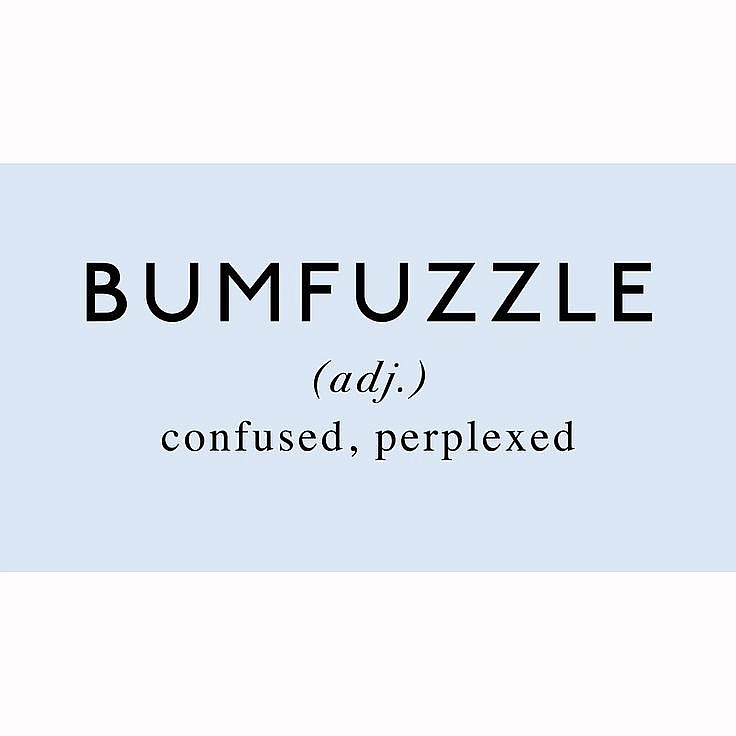 |
| Photo Pinterest |
To bumfuzzle is to confuse or fluster.
Bumfuzzle is most often used in the dialect of the Southern United States. It is colloquial, meaning it is typically used in informal conversation. It is very similar to bamboozle, and may be derived from it.
How to pronounce: /buhm-fuhz-uhl/
E.g. I was totally bumfuzzled by the physics homework last night—I didn’t understand any of it!
7. Behoove
Definition: You can use behoove as a verb that means to be necessary or appropriate for something else. It comes in handy when telling someone why they should do something or when writing a persuasive essay.
Pronunciation: /bɪˈhuv/
Example: «It would behoove the students to learn the vocabulary terms before the test next week.»
Idiom:
• it behooves somebody to do something (formal)
• it is right or necessary for someone to do something
• E.g. It behooves us to study these findings carefully.
8. Cacophony
Definition: A cacophony is a harsh mixture of sounds. It descends from the Greek word phōnē which means sound or voice, and is joined with the Greek prefix kak-, meaning bad; creating the meaning bad sound. In a similar way, the word symphony (which means a harmonious arrangement of instruments) traces to phōnē and the Greek prefix syn-, which means together.
Pronunciation: /kəˈkɒf.ə.ni/
E.g. I couldn’t hear over the cacophony of alarm bells.
How to Remember Weird New English Words: Use Post-It Notes and Cards
If you find some words very difficult to remember, try to write the word on a post-it note and stick it somewhere where you’ll see it often. The more you read the word the more you’ll remember it.
You could also have small cards with new words that you take with you to different places—you can then refresh your memory when sitting on the train or bus, waiting for a friend in a coffee shop on your lunch break… anywhere!
9. Crapulence
Definition: Sickness caused by excessive eating or drinking
Pronunciation: krăp′yə-ləns
10. Diphthong
Definition: A sound formed by the combination of two vowels in a single syllable, in which the sound begins as one vowel and moves toward another (noun)
Pronunciation: /ˈdɪf.θɒŋ/
E.g.To adopt such an idea would simplify the teaching of the vowels to learners, since you could absorb these so-called diphthongs into the simple system.
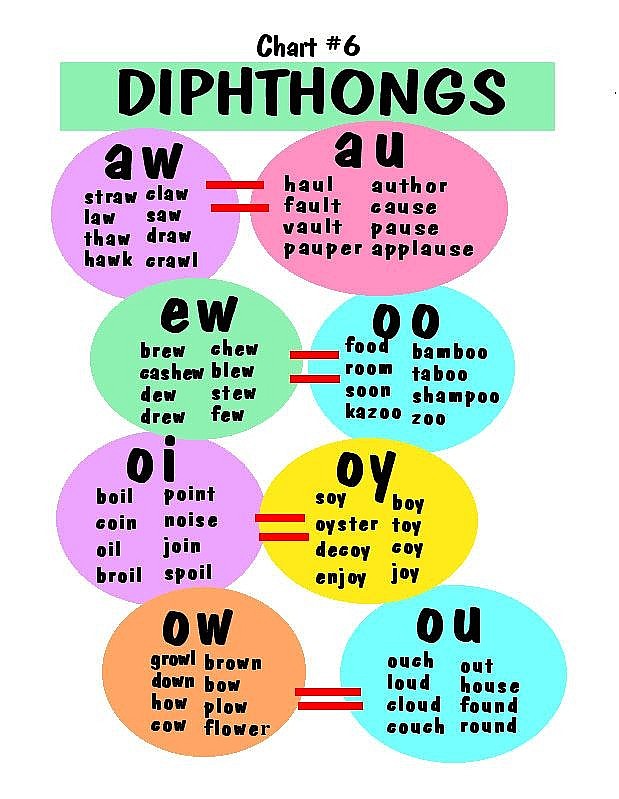 |
| Photo Pinterest |
11. Draconian
An adjective to describe something that is excessively harsh and severe. Derives from Draco, a 7th-century Athenian law scribe under whom small offenses had heavy punishments; prescribing death for almost every offence.
Pronunciation: /drəˈkəʊ.ni.ən/
E.g. The new parking fines are positively draconian.
12. Effete
Sometime, you meet someone or encounter something that is overly refined — even to the point of uselessness. That thing is effete.
Pronunciation: /ɪˈfiːt/
Example: «Her beautifully manicured nails were an effete affectation, getting in the way every time she tried to type.»
13. Fatuous
Definition: Sometimes you need to describe someone or something that is foolish or silly. That’s a great time to use the word fatuous.
Pronunciation: /ˈfætʃ.u.əs/
Example: «The clown wore large shoes and a red nose and was generally fatuous.»
14. Gargalesthesia
 |
| Photo Pinterest |
Definition: The sensation commonly associated with tickling
Pronunciation: /gar-guhl-es-thee-zee-yah/
15. Gobbledygook
Definition: Close your eyes for a second and think of a turkey. What sound does it make? Does it sound something like “gobble, gobble, gobble”? That’s exactly where this word came from!
Created from the meaningless sound that turkeys make, gobbledygook (noun) was originally an American English word. It was created in the 1940’s to mean words that are nonsense or have no meaning. It also describes when people use too many technical words and so other people can’t understand what they’e saying.
Pronunciation: /ˈɡɒb(ə)ldɪˌɡuːk/
E.g. The Director was talking a load of gobbledygook in that meeting. I have no idea what he wants!”
16. Jentacular
Definition: Of or pertaining to a breakfast taken early in the morning, or immediately upon getting up
Pronunciation: jen-TAK-yuh-luhr
• jabberwock means nonsense, gibberish
• jabiru means large tropical stork with massive bill
• jettatura means the evil eye
• jib means small triangular sail extending from the head of the foremast
• jibboom means spar forming an extension of the bowsprit
• jibe means to change a ship’s course to make the boom shift sides
• jiboya means boa constrictor
• jiffy means unit of time used in computing equal to 1/100 second; any small unit of time
• jupon means sleeveless jacket worn beneath a hauberk
• jural means of, like or pertaining to the law
17. Kerfuffle
Pronunciation: /kəˈfʌf(ə)l/
Kerfuffle (noun) has been around since the early 1800s. There are two ideas as to how it came into English. It probably came from either Scottish Gaelic or from Celtic Irish, the languages that were used historically in Scotland and Ireland.
If somebody asked you the following question, would you know what they meant?
“What’s all the shouting for? Why are you making such a kerfuffle?”
It means to make a fuss or a bother, usually when people have different points of view. Imagine two of your friends having a minor disagreement over something and making quite a bit of noise – doesn’t kerfuffle sound like a great way to describe the situation? They might also be making a hullaballoo too…
Weird long word: Kakorrhaphiophobia
Kakorrhaphiophobia is an abnormal, persistent, irrational fear of failure. In clinical cases, it’s debilitating: the fear of even the most subtle failure or defeat is so intense that it restricts a person from doing anything at all.
Kakorrhaphiophobia is the most extreme version of what we all experience when we decide to acquire a new skill: doubt, uncertainty, anxiety about our capabilities, and fear of what others will think:
- «What if I fail?»
- «What if I look bad?»
- «What if others think I’m stupid?»
- «What if others think I’m not very good?»
- «What if others aren’t impressed with what I can do?»
18. Hullaballoo (ˌhʌl.ə.bəˈluː)
 |
| Photo behance |
Pronunciation: /ˌhʌl.ə.bəˈluː/
“Did you hear all that hullaballoo in the office today?”
A word that really sounds like what it means, hullaballoo (noun) is the loud noises and shouting that people make when they’re angry.
It’s been part of the English language since the middle of the 18th century.
19. Lionize
Pronunciation: /ˈlaɪ.ə.naɪz/
This awesome positive L word is a verb you can use to talk about celebrities and important historical figures and the way people view them. Lionize means to treat someone as a hero.
Example: «In the North, people began to lionize Abraham Lincoln soon after his assassination.»
20. Lalochezia
Definition: Emotional relief gained by using indecent or vulgar language.
Pronunciation: lal’ō-kē’zē-ă
21. Meldrop
Definition: A drop of mucus hanging from the tip of one’s nose
Pronunciation: mell–drawp
Weird short word
22. Noisome
Definition: If you need to describe something that is harmful or really annoying to the point of near harm, use the word noisome. It’s also ideal for describing something that smells bad.
Pronunciation: /ˈnɔɪ.səm/
Example: «The cooler of fish, forgotten in the trunk of the car, began to emit a noisome odor after a few days.»
 Top 25 Trickiest Eggcorns In The English Language
Top 25 Trickiest Eggcorns In The English Language
Do you know sometimes a word that sounds like the right word and feels like the right word isn’t actually the right word. It is …
23. Obfuscate
Definition: Have you ever seen someone make something more confusing than it needs to be? That person is obfuscating a concept.
Pronunciation: /ˈɒb.fʌs.keɪt/
Example: «While making bread is really a very simple process, his explanation of the different types of yeast and flour served to obfuscate the concept.»
24. Nikehedonia
Definition: The pleasure or excitement that comes from anticipating success
Pronunciation: nai-kee-huh-daa-nee-uh
25. Nudiustertian
Definition: Of or relating to the day before yesterday
Pronunciation: noo-dee-uhs-TUR-shuhn
E.g.“I’d placed the order that nudiustertian morning”
26. Pareidolia
Pronunciation: /ˌpær.ɪˈdəʊl.jə/
Definition: A psychological phenomenon in which the mind perceives a specific image or pattern where it does not actually exist, such as seeing a face in the clouds. Pareidolia can be used to explain a host of otherwise unexplained sightings.
E.g. Alex was sure he saw a human face on the moon’s surface, but it was more likely to be pareidolia.
27. Riposte
Pronunciation: /rɪˈpɒst/
Definition: A quick or witty retaliatory reply. In the context of the sport of fencing, a riposte means a counterattack that is made after successfully fending off one’s opponent.
E.g. Cora was known for having an excellent riposte to any insult.
28. Obelus
Definition: The name for the division symbol ÷
Pronunciation: aa-buh-luhs
29. Verisimilitude
Definition: Something that merely seems to be true or real. Many writers or filmmakers try for some kind of verisimilitude in their stories, to make them believable. Including a great many details in a novel, for example, adds to its verisimilitude.
Pronunciation: /ˌver.ɪ.sɪˈmɪl.ɪ.tʃuːd/
E.g. She was experiencing a nightmare of the most extraordinary verisimilitude.
30. Zeugma
Definition: A figure of speech in which one word has a double meaning within a sentence, zeugma is a useful term for language arts papers. An example of this would be, “He stole my heart and my car.”
Pronunciation: /ˈzjuːɡ.mə/
Example: «In a statement of zeugma, she said she liked her men like she liked her tea: sweet, strong, and fragrant.»
Conclusion
How to use these rare words correctly? First you should understand their meaning.
If you’ve ever seen someone misusing words, you know how that kind of mistake can reflect negatively on perceptions of intelligence. Take a few moments to quiz yourself on the meaning of these uncommon words so you can break them out in your next essay or speech.
 The Most Popular Passwords and The Worst Passwords The Most Popular Passwords and The Worst Passwords
Surprising, many people seriously still using 123456, abcd1234… as a password for their online accounts. If your password is on this list, you should change … |
 Most Expensive Google Keywords 2022 to Increase Adsense Earnings Most Expensive Google Keywords 2022 to Increase Adsense Earnings
We try to find ouf and predict the most expensive Google keywords in 2022 and the coming years — High CPC Adsense Keywords — that … |
 Learn These 2 Words, Your Life Will Change Automatically Learn These 2 Words, Your Life Will Change Automatically
In this life, there are no insurmountable obstacles, after the rain there will be a rainbow. A truly wise person is one who knows how … |

